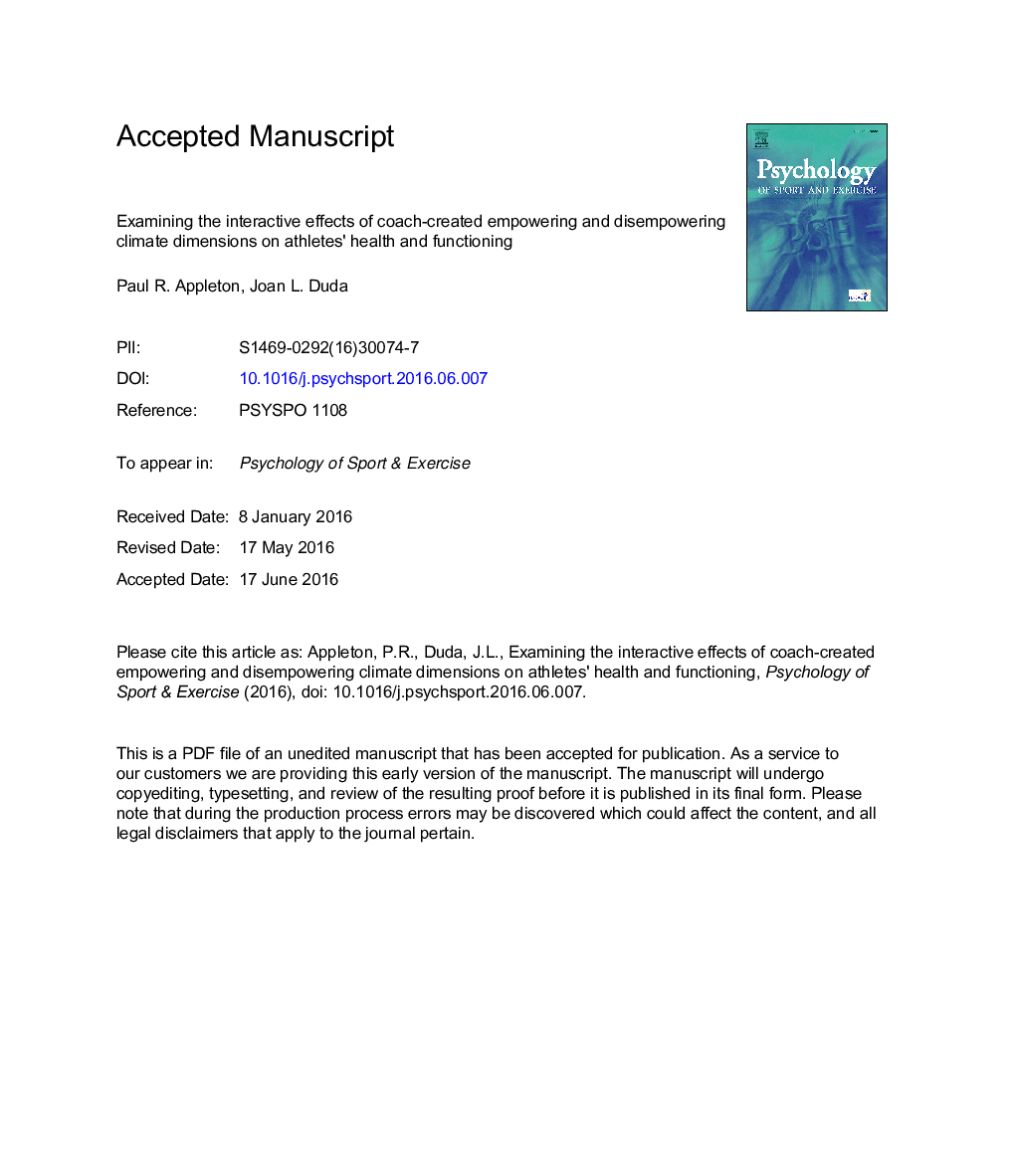| Article ID | Journal | Published Year | Pages | File Type |
|---|---|---|---|---|
| 7253229 | Psychology of Sport and Exercise | 2016 | 34 Pages |
Abstract
Based in Duda's (2013) hierarchical and multidimensional conceptualisation of the motivational climate, the purpose of this study was to examine whether a coach-created empowering motivational climate moderated the debilitating effects of a disempowering motivational climate on athletes' health and optimal functioning. Athletes (N = 406, M age = 23.1 years; 67% male) completed questionnaires assessing their perceptions of coach-created empowering and disempowering climates created in training and competition, enjoyment in sport, burnout symptoms, global self-worth, and symptoms of physical ill-health. Following the recommendations of Hayes (2013) and Dawson (2014), and using PROCESS (Hayes), moderated regression analyses showed that the interaction between disempowering and empowering climate dimensions was significant and predicted 1% unique variance in 3 outcome variables (i.e., enjoyment, reduced accomplishment, and physical symptoms). The Johnson-Neyman technique was employed to plot and probe the significant interactions, which revealed moderately strong to strong values of an empowering climate tempered the significant relationship between a disempowering climate and the three outcome variables. The findings from this study have implications for coach education and suggest programmes that train coaches to understand how to create empowering climates and avoid (or dramatically reduce) disempowering climates are warranted.
Related Topics
Health Sciences
Medicine and Dentistry
Orthopedics, Sports Medicine and Rehabilitation
Authors
Paul R. Appleton, Joan L. Duda,
